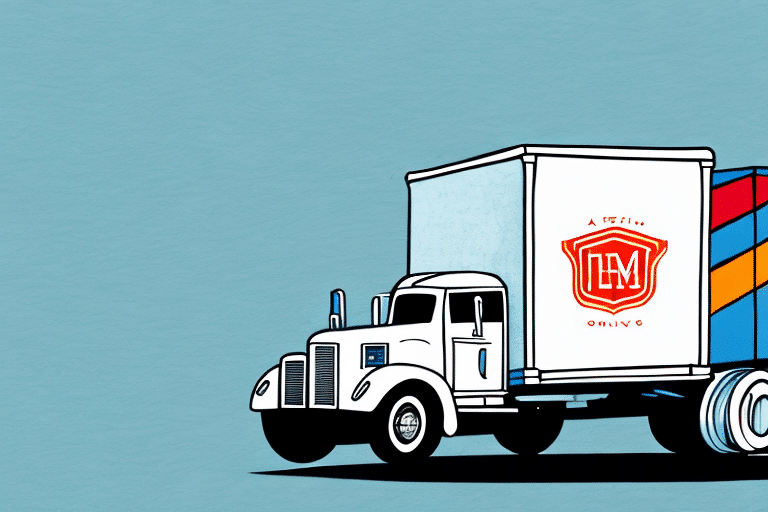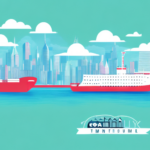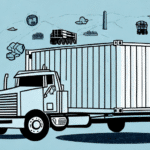Understanding LTL Freight Shipping
Less Than Truckload (LTL) freight shipping is a logistics service designed for transporting smaller freight loads that do not require the full capacity of a truck. This method allows multiple businesses to share the cost of shipping, making it a cost-effective solution for companies with smaller shipments. Unlike Full Truckload (FTL) shipping, where an entire truck is dedicated to a single shipment, LTL consolidates various shipments from different businesses into one truck, optimizing space and reducing costs.
What is LTL Freight Shipping?
LTL freight shipping involves the transportation of goods that typically weigh between 150 to 15,000 pounds. This shipping method is ideal for businesses that do not have enough cargo to fill an entire truck, enabling them to pay only for the space their shipment occupies. By sharing truck space with other shipments, businesses can significantly reduce their shipping expenses.
How LTL Freight Shipping Works
LTL shipping operates on a hub-and-spoke model. Goods from various businesses are first consolidated at a central hub. From there, the consolidated shipments are transported to regional hubs closer to their final destinations. Local delivery trucks then handle the final leg of the journey, delivering the shipments to their respective destinations. This system allows for efficient consolidation and distribution of freight, though it may result in longer transit times compared to FTL shipping due to multiple stops.
Benefits of LTL Freight Shipping
LTL freight shipping offers numerous advantages for businesses of all sizes. These benefits range from cost savings to enhanced flexibility and environmental sustainability.
Cost-Effective Advantages
One of the primary benefits of LTL shipping is its cost-effectiveness. Businesses only pay for the space their shipment occupies, rather than the entire truck. According to the American Trucking Association, utilizing LTL can reduce shipping costs by up to 50% compared to FTL shipments for smaller loads.
Benefits for Small Businesses
For small businesses, LTL shipping provides an affordable way to transport goods without the burden of high shipping costs associated with full truckloads. It also offers greater flexibility in shipping schedules and quantities, allowing small businesses to scale their shipping needs as they grow. This flexibility is crucial for managing cash flow and inventory effectively.
Environmental Impact
LTL shipping is more environmentally friendly than FTL shipping. By consolidating multiple shipments into a single truck, LTL reduces the number of trucks on the road, leading to lower carbon emissions and decreased traffic congestion. The Environmental Protection Agency highlights that optimizing truck loads can significantly reduce the carbon footprint of freight transportation.
Choosing the Right LTL Carrier
Selecting the appropriate LTL carrier is crucial for ensuring the efficiency and reliability of your shipments. Several factors should be considered when making this decision.
Key Factors to Consider
- Service Coverage: Ensure the carrier operates in the regions you need to ship to and from.
- Reputation and Reliability: Research carrier reviews and ratings to gauge their performance and reliability.
- Pricing: Compare rates from different carriers to find the most competitive pricing without compromising on quality.
- Insurance Coverage: Verify that the carrier provides adequate insurance to protect your goods during transit.
International Shipping Considerations
For businesses looking to ship internationally, it's essential to choose an LTL carrier with experience in handling cross-border shipments. Factors to consider include the carrier’s familiarity with international shipping regulations, customs handling capabilities, and their global network. Additionally, understanding the carrier’s ability to manage tariffs and duties is vital for seamless international shipping operations.
Managing LTL Shipments Efficiently
Efficient management of LTL shipments can lead to cost savings, reduced transit times, and minimized risk of damage.
Best Practices
- Consolidate Shipments: Combine multiple smaller shipments into one to maximize space utilization and reduce costs.
- Proper Labeling and Packaging: Use sturdy packaging materials and clearly label all shipments to prevent damage and ensure accurate delivery.
- Secure Loading: Ensure that goods are securely loaded onto pallets and that pallets are properly wrapped to prevent shifting during transit.
- Regular Data Analysis: Continuously review shipping data to identify trends, inefficiencies, and areas for improvement.
Technology Integration
Incorporating advanced technology can enhance the management of LTL shipments. Transportation Management Systems (TMS) provide real-time tracking, shipment visibility, and automated dispatching, which streamline operations and improve communication between shippers and carriers. Additionally, technologies like GPS tracking and Electronic Data Interchange (EDI) facilitate seamless information exchange and enhance supply chain transparency.
Cost-Saving Tips for LTL Freight Shipping
Implementing strategic measures can help businesses reduce their LTL shipping costs without compromising on service quality.
- Negotiate Rates: Establish long-term relationships with carriers to negotiate favorable rates and secure volume discounts.
- Optimize Packaging: Use appropriately sized packaging to minimize wasted space and reduce dimensional weight charges.
- Schedule Shipments Efficiently: Plan shipments during off-peak times to take advantage of lower rates and increased carrier availability.
- Utilize Technology: Leverage TMS and other software solutions to optimize routing, reduce empty miles, and enhance overall shipping efficiency.
Common Misconceptions about LTL Freight Shipping
Despite its benefits, several misconceptions persist about LTL freight shipping. Addressing these can help businesses make informed shipping decisions.
- LTL is Slower than FTL: While LTL shipments may take longer due to multiple stops, advancements in logistics have significantly improved transit times, making LTL a reliable option for timely deliveries.
- LTL is Only for Small Loads: LTL can accommodate a wide range of shipment sizes, and many carriers offer scalable solutions to handle varying freight volumes.
- LTL is More Prone to Damage: Proper packaging and choosing reputable carriers mitigate the risk of damage, making LTL as secure as FTL shipping.
Future Trends in LTL Freight Shipping
The LTL freight industry is evolving with emerging trends and innovations aimed at enhancing efficiency, sustainability, and customer satisfaction.
Technological Innovations
Integration of Artificial Intelligence (AI) and Machine Learning (ML) is revolutionizing route optimization, predictive maintenance, and demand forecasting in LTL shipping. These technologies enable carriers to optimize routes, reduce fuel consumption, and improve delivery accuracy. Additionally, automation in warehouses and loading processes enhances operational efficiency and reduces manual errors.
Sustainability Initiatives
Environmental sustainability is becoming a priority in the freight industry. LTL carriers are increasingly adopting eco-friendly practices such as using electric and hybrid-powered vehicles, implementing energy-efficient warehousing solutions, and optimizing routes to reduce carbon emissions. These initiatives not only benefit the environment but also appeal to environmentally conscious consumers and businesses.
Conclusion
LTL freight shipping offers a flexible, cost-effective, and environmentally sustainable solution for businesses looking to transport smaller freight loads. By understanding the intricacies of LTL shipping, selecting the right carrier, and implementing efficient management practices, businesses can optimize their shipping operations, reduce costs, and enhance overall supply chain efficiency. As the industry continues to evolve with technological advancements and sustainability initiatives, LTL freight shipping will remain a vital component of modern logistics strategies.






















